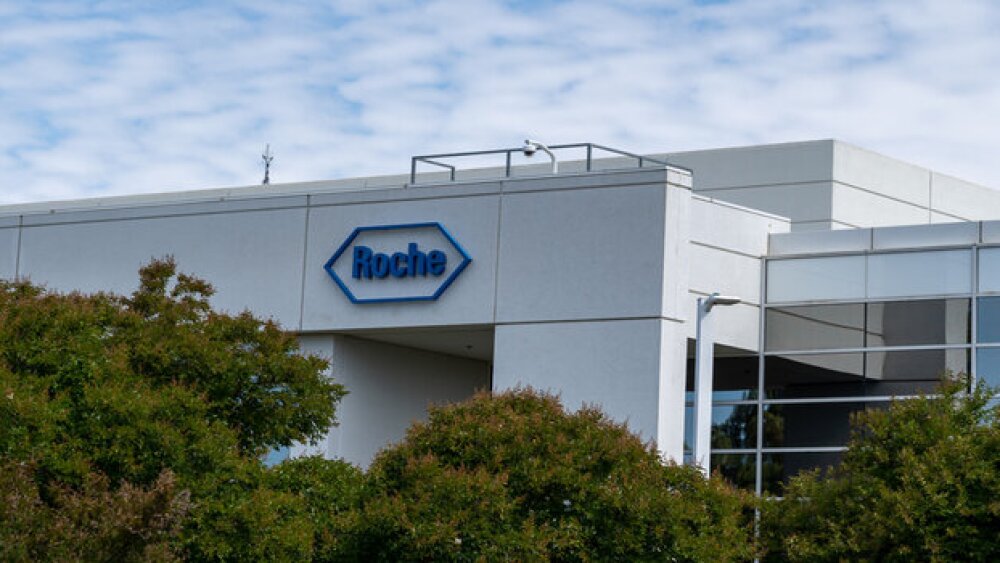When combined with Tecentriq and chemotherapy, tiroagolumab increased median survival to 15.7 months compared to 11.1 months for patients with esophageal squamous cell carcinoma on chemo alone.
Pictured: Roche building in Pleasanton, California/iStock, JHVEPhoto
After a lackluster data leak in 2023, Roche’s Genentech is turning the tables with positive Phase III data for its anti-TIGIT immunotherapy. The subsidiary revealed study results Tuesday in an abstract at this week’s American Society of Clinical Oncology Gastrointestinal Cancers Symposium.
In patients with esophageal squamous cell carcinoma (ESCC), tiragolumab improved progression free survival (PFS) and overall survival when combined with Tecentriq and chemotherapy versus chemo alone. SKYSCRAPER-08 enrolled 461 ESCC patients in Asian countries. Median survival in the treatment arm was 15.7 months, compared to 11.1 months in the control arm. PFS was 6.2 months versus 5.4 months in the anti-TIGIT arm compared to chemo and placebo.
Another trial of the treatment did not show any benefit to PFS in patients with non-small cell lung cancer (NSCLC). Last year, after an accidental data drop, the company announced tiragolumab also failed to improve overall survival for locally advanced or metastatic NSCLC. SKYSCRAPER-08 is one of seven Phase III trials for tiragolumab.
Roche’s first quarter 2023 earnings announcement caused some speculation on the checkpoint inhibitor for ESCC, with investors foreseeing another failure. The final data released Tuesday shows positive results but it’s not necessarily a slam dunk.
While the endpoints of the trial were met, the trial’s comparator of chemo only is no longer considered the standard of care for ESCC. First-line treatments now include a PD-1 inhibitor like Merck’s Keytruda or BMS’ Opdivo. A checkpoint inhibitor was not included in Genentech’s control arm.
The anti-TIGIT market has proved a tough egg to crack and Roche isn’t alone in facing challenges.
In July 2023, Novartis axed its partnership with BeiGene, taking a loss on the $300 million dropped upfront for an anti-TIGIT in NSCLC. Merck’s Keytruda plus anti-TIGIT combo also failed in NSCLC last year. The company announced in December 2023 the treatment did not improve PFS or meet secondary endpoints for overall survival or overall response.
Partners Gilead and Arcus are among the few touting positive results in the competitive space. In November 2023, the two shared Gilead’s Fc-silent anti-TIGIT antibody domvanalimab plus Arcus’s anti-PD-1 asset zimberelimab and chemotherapy had an “encouraging” overall response rate and a six-month PFS rate in a Phase II trial. The data supports an ongoing Phase III study of the combination, which is also being investigated in lung cancer.
Despite setbacks, the anti-TIGIT market is expected to expand with Roche considered one of its leading players. As of September 2023, more than 40 anti-TIGIT antibodies are in clinical trials.
Kate Goodwin is a freelance life science writer based in Des Moines, Iowa. She can be reached at kate.goodwin@biospace.com and on LinkedIn.






